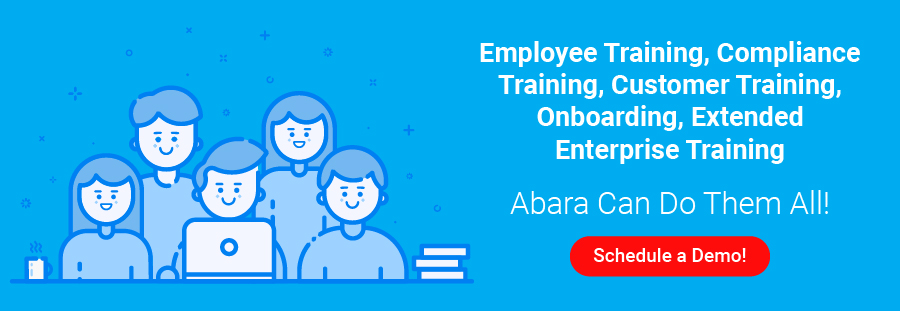As we turn the last corner for 2019, as L&D professionals, now is the time to look back at the training programs we employed. It is now that we systematically survey their success, shortcomings, and prepare a training plan for 2020.
However, 2020 is not about new ideas only. 2019 had some great concepts to aid with training initiatives and we think a few of them should make it to 2020.
On this Page
Preparing a Training Plan for 2020
To prepare for 2020, let us start by including or excluding initiatives that were discussed in 2019:
ILT – Instructor Led Training
ILT is an amazing concept, especially because it entails the conjunction of traditional training concepts and modern training initiatives.
Traditional training here is the inclusion of a physical trainer, venue, and physical learners.
Modern learning is the inclusion of an LMS to support either the pre training, post training, or both stages when working with a physical trainer.
In theory, ILT sounds perfect, where additional training content on an LMS supplements the presence of a physical training initiative. However, practicality has a different picture to paint because implementing an LMS is considered an initiative of saving costs and moving away from traditional training approaches. However, ILT believes in the concept of supporting traditional training with the help of technology.
Immediately, we face two problems:
- 1. ILT still employees all traditional training approaches and their associated costs, which means it is not aiding with cost-cutting as technology-based training approaches intend.
- 2. Implementing an LMS to support traditional training concepts is an additional cost to an already expensive affair (traditional training).
What do we suggest?
Try webinars, not only are they cost-effective but they are easier to plan, host, and manage! However, you may need an LMS with:
- 1. Multiple webinar tool integrations
- 2. Strong hosting abilities to facilitate user traffic
So go ahead and embrace webinars, you can obviously keep ILT-based training for very specific training initiatives.
Social Learning
Name one activity that almost all people are engaged in globally even as you read this? The answer is: Social Media Browsing.
Social Learning is not all that different from social media browsing. The few differentiation setting them apart are:
- 1. Content is viewed on an LMS instead of a social media platform
- 2. People sharing their experiences are colleagues
- 3. Content moderators approve the content
- 4. It is an informal approach towards a formal activity of training and development
Why does social learning work?
As humans, we like to share information and help others. Furthermore, we like being recognized for our contributions towards the collaborative development of everybody. Hence, social learning as a concept works. It’s about sharing ideas, solutions, and helping others and being recognized in return for our contributions.
This is surely a concept to carry into 2020.
Learning Path (LP)
‘Automation is the future,’ is what everybody says lately. This is very true. In the world of learning and development, we have Learning Path as a tool or a feature that helps with automating the training function.
One of the core principles for 2020’s learning and development plan is ‘Simplifying Administration’—we will discuss this in part 2 of the blog—however, a good way of simplifying the L&D function is by automating administrative workflows. And learning path is a feature that helps us do this.
To explain in simple: LP is the ability to automate an employee’s learning journey based on their current job role and the job roles they are expected to fulfill in the future. Once programmed, the LMS introduces advanced training modules with time. This way no training is delivered too early or too late. All training must be delivered at the right time based on where the learner is within their employee life cycle within the organization. Click Here To Know More About Learning Paths.
In conclusion, LPs are definitely something to carry into 2020 with the objective of ‘Simplifying Administration.’
Mobile Learning
The latest statistics for mobile usage in India, only indicates the fact that mobile usage is on the rise. With data pricing declining, the number of smartphone users will only increase.
At Abara, we see this as boon for modern employees/learners. But before we explain why, it’s important to first understand what a modern learner/employee is:
- Someone who has very little free time on hand
- Someone who wants to learn, but sees forced learning or inaccessible learning as a burden
- People who are very ambitious and want to exceed
- Training and development is something they really consider, but the general unwieldiness of training and development is stopping them from actively pursuing it
Training and development interests modern learners. This is evident from the fact that they want to learn. But, the shortage in time is a deterrent, as a result, they try and avoid training. Also, saying mobile learning is the only true solution to this may not be real. However, it is definitely a strong solution, nevertheless.
Training Plan for 2020
These are just the initiatives from 2019 to be carried over into next year. However, to tackle 2020, there is a whole bunch of initiatives to consider and part 2 is all about that! To know more about our offerings, write to us at: contactus@abaralms.com or take an Abara LMS Free Trial. You can also reach us by submitting a Call-Back Request.


